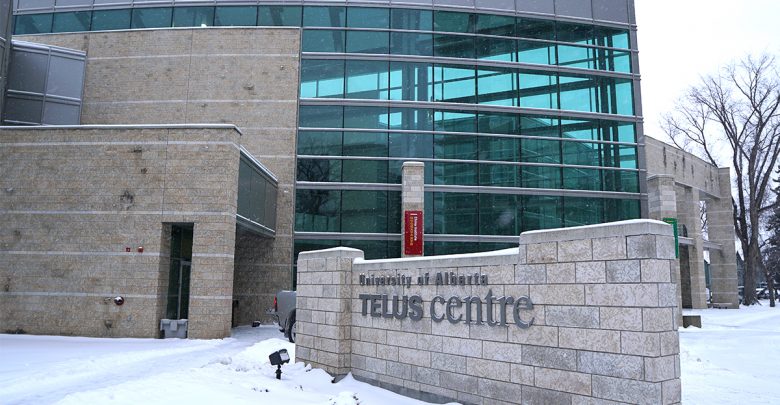 Richard Bagan
Richard BaganInside the Telus Centre on Tuesday night, student governance died an agonizing death.
Council was meant to be voting on the referendum question for the Student Spaces Levy, a fee that would be used to renovate SUB and student spaces around campus.
This simple vote devolved into a display of blatant disregard for the governance process.
Debate primarily revolved around the unclear — honestly, outright deceptive — wording of the question. Some councillors brought up their concerns about the vague wording, while other councillors felt they didn’t have enough information to feel comfortable voting on the question.
The information they wanted is in a transparency document which vice president (operations and finance) Emma Ripka is releasing on Friday — three days after the vote was to take place.
After more debate on the question, councillors and executives scrambled to propose amendments to the wording. During this scramble, Speaker Jonathan Barraclough allowed side conversations between councillors about the question’s wording to occur in normal proceedings. SU General Manager Marc Dumouchel travelled, unchallenged, from councillor to councillor, pulling some of them out of the room to discuss god knows what.
Council, against its own rules, never formally entered committee to discuss the amendments; ironically, they did so when they discussed the transparency document.
Deliberations went on, with wordings hastily and sloppily typed out on a projected google doc. With the end of council arising, executives and councillors soon realized, in a panic, that they may break bylaw by not filing the referendum question to the SU elections chief returning officer in time. Executives and councillors alike starting pulling up SU bylaws and calendars, rapidly calculating how much time they had left to vote before they broke their own rules.
In a stroke of genius, vice-president (academic) — and SU presidential candidate — Akanksha Bhatnagar suggested that council just break their own rules, stating that “it is not the worst thing in the world to break a bylaw.” This staggering statement was followed up by Speaker Johnathan Barraclough stating that there would be no repercussions for council breaking bylaw.
Any sane person knows that this is a bald-faced lie. Luckily, SU president Reed Larsen rightfully pointed this out to council. The SU DIE Board, after all, exists for a reason: to dole out proper punishment to the SU for breaking bylaw. Ripka noted that if the SU broke bylaw, the DIE Board could strike the question from the ballot, nullifying the several months work put into the project.
While Ripka might have known this important detail, she asked if council could craft a new bylaw to extend the question submission deadline in the middle of the meeting. Whether this was an act of desperation or ignorance, I have no idea.
Given councillors’ concerns, as well as the fact that councillors were learning brand new information about the levy the day of voting, the question should’ve been brought forward ages ago, not left to the last more possible minute. This is poor governance, plain and simple.
At the end of this hour-and-a-half monstrosity of a motion, no vote happened. Council instead decided to hold another emergency meeting to vote on the issue.
This meeting showed us a council divided. This wasn’t a council engaging in good faith to find truth or consensus; this was a council where the executives and Dumouchel attempted to push through a referendum question for a self-serving levy, disregarding councillors’ concerns for their constituents. There was no effort, nor desire, to work together to decide what students would truly want.
This was a council eating itself alive.
Governance structures and procedures exist for important reasons: checks and balances, accountability, and due process. Without these things, it becomes a free-for-all, difficult to keep track of and easy for some to capitalize on. Weak enforcement of these is what let this vote devolve into the mess it became.
This council meeting has made me see why many students don’t follow student governance. It’s because the powerful in council don’t care about what students want. Student representatives get pushed around, executives attempt to bring forth policy they don’t want. Students are treated like they’re idiots, incapable of understanding the policies they vote on. It only makes sense that they don’t care.
After the cold-blooded murder of governance that happened in Telus, the upper levels of the UASU need to do some serious soul-searching. They need to take a step back, realize their purpose, and remember who they serve: students.
Students deserve better governance than this.




